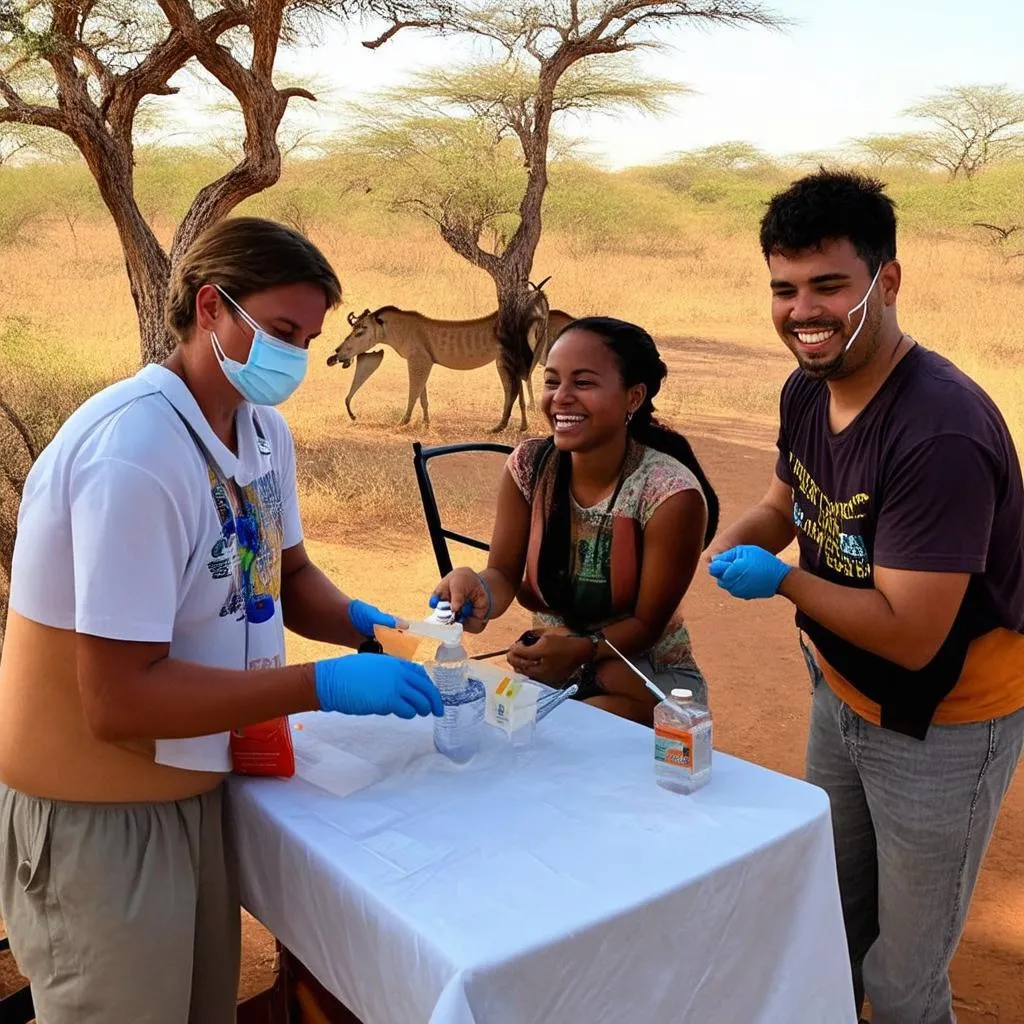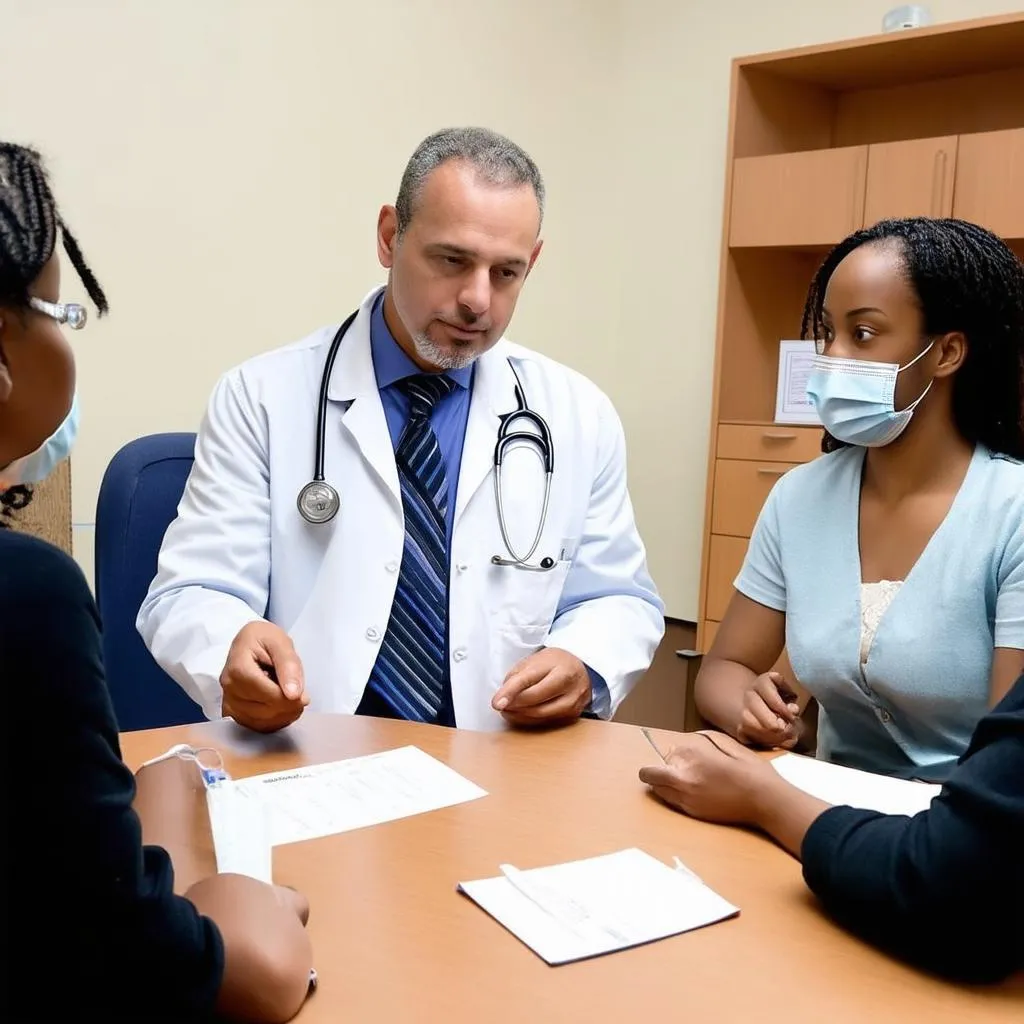“The world is a book and those who do not travel read only one page.” – Saint Augustine. This rings especially true when it comes to the diverse and magnificent continent of Africa. However, before you embark on your adventure to see Victoria Falls or climb Mount Kilimanjaro, it’s crucial to prioritize your health. One of the most important aspects of travel preparation is ensuring you have the necessary vaccinations.
Why Vaccinations are Essential for Traveling to Africa
Africa, with its incredible biodiversity, also presents unique health risks compared to other continents. Some diseases that are rare in developed countries are more common in certain parts of Africa. Vaccines act as your body’s first line of defense, helping to prevent serious illnesses and ensuring you have a safe and enjoyable trip.
Recommended Vaccinations for Africa Travel
While specific vaccination requirements vary depending on the countries you’re visiting and your personal health history, some vaccinations are commonly recommended for travelers to Africa.
Routine Vaccinations:
Before considering travel vaccines, ensure your routine vaccinations are up to date. These typically include:
- Measles, Mumps, Rubella (MMR): Measles outbreaks can occur anywhere, so it’s vital to be protected.
- Diphtheria, Tetanus, Pertussis (DTaP): This combination vaccine protects against three serious bacterial infections.
- Polio: While polio has been eradicated in many parts of the world, it’s still crucial to be vaccinated, especially if you’re traveling to areas where the virus might still be present.
- Chickenpox: If you haven’t had chickenpox or the vaccine, it’s recommended to get vaccinated before traveling.
- Influenza: The flu virus is constantly changing, so getting your annual flu shot is always a good idea, especially before traveling.
Recommended Travel Vaccinations:
- Hepatitis A and B: These viral infections affect the liver and are preventable through vaccination.
- Typhoid: This bacterial infection spreads through contaminated food and water and is more common in developing countries.
- Yellow Fever: Some African countries require proof of yellow fever vaccination for entry. Even if it’s not mandatory, it’s highly recommended for travelers going to at-risk areas.
- Rabies: While rabies vaccination is not routinely recommended for all travelers, it’s worth considering if you plan on engaging in activities like hiking or camping, or if you’ll be interacting with animals.
- Meningococcal Meningitis: This serious bacterial infection affects the brain and spinal cord. Vaccination is particularly important if you’re traveling during the dry season (December to June) in the “Meningitis Belt” across sub-Saharan Africa.
Consulting a Travel Health Specialist
Consulting a travel health professional is paramount in planning your trip to Africa. They can provide personalized recommendations based on your itinerary, medical history, and any specific activities you have planned.
For example, Dr. Anya Sharma, a renowned travel health expert and author of “The Global Traveler’s Health Guide,” advises, “Don’t underestimate the importance of a pre-travel health consultation. It allows us to tailor vaccination recommendations to your specific needs and educate you on ways to stay healthy throughout your journey.”
Additional Health Tips for Traveling to Africa
- Malaria Prophylaxis: Depending on your destination, your doctor may prescribe antimalarial medication.
- Insect Repellent: Use insect repellent containing DEET to prevent mosquito bites and reduce your risk of diseases like malaria, Zika, and dengue fever.
- Food and Water Safety: Consume bottled water, avoid ice cubes, and be cautious of food from street vendors.
- Travel Insurance: Ensure you have comprehensive travel insurance that covers medical emergencies and evacuations.
Planning Your African Adventure with travelcar.edu.vn
At travelcar.edu.vn, we believe in empowering travelers with the information they need for safe and unforgettable journeys. We offer a wealth of resources on various aspects of travel, including destination guides, safety tips, and essential travel advice.
For more information on travel vaccinations and other health precautions, check out our article “Do I Need Vaccination to Travel?”.
 African Safari Vaccinations
African Safari Vaccinations
FAQs about Vaccinations for Africa Travel
Q: How far in advance should I get vaccinated before my trip?
A: Ideally, start your vaccinations at least 4-6 weeks before departure to allow your body enough time to build immunity.
Q: Where can I get vaccinated?
A: You can get vaccinated at your doctor’s office, travel health clinics, or local health departments.
Q: Are there any side effects from travel vaccines?
A: Some vaccines may cause mild side effects like soreness at the injection site, fatigue, or low-grade fever. These side effects are usually temporary and much less severe than the diseases the vaccines protect against.
 African Travel Clinic
African Travel Clinic
Embrace the Adventure, Prepare for a Safe Journey
Africa awaits with its breathtaking landscapes, vibrant cultures, and incredible wildlife. By taking the necessary health precautions, including getting the recommended vaccinations, you can embark on your African adventure with peace of mind, knowing you’ve prioritized your well-being. Remember, your health is your passport to an unforgettable travel experience.
Don’t forget to share your travel stories and tips in the comments below and explore more travel advice on TRAVELCAR.edu.vn!

